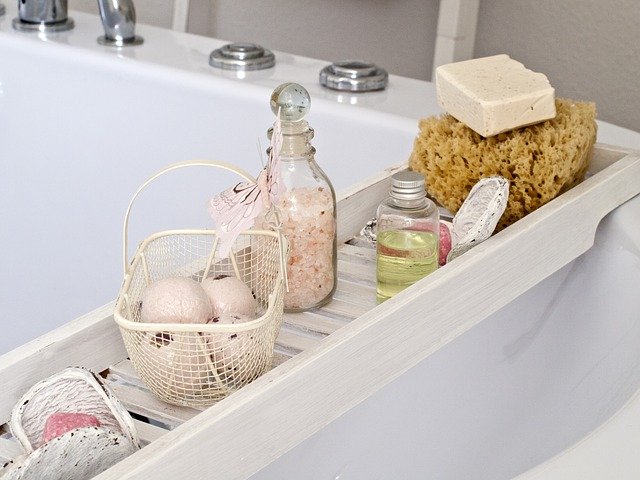Image by gefrorene_wand from Pixabay
Therapists prescribe taking baths to aid in recovery and ease the pain. But you do not have to have chronic pain or skin condition to enjoy a bath’s benefits. Having a bath aids in releasing toxins and settling your body down. Taking a long bath has positive effects on your mental and physical well-being. It helps manage anxiety, reduce stress and improve relaxation.
If you are thinking of adding a bath to savour the pleasure of having a soothing soak, you can visit http://www.jtspas.co.uk, where you’ll find a variety of choices and useful information.
How to have the most relaxing bath
To make sure that you enjoy your bath and have the most wonderful time while relieving your stress, here are the steps.
1. Take a shower first. You can indeed get cleaner when you take a bath than a shower. However, if you are planning to have a long soak to relax your muscles and relieve your stress, it is better if you are already clean so that the water where you’re soaking in remains clean instead of muddied with the dirt coming off your body.
2. Use warm water. The temperature of your bathwater depends on your preference. Some people like to soak in cold water. However, to prevent straining your cardiovascular system, the water should have the same temperature as your surroundings so that your body does not have to adjust to the change in temperature.
3. Add some therapeutic ingredients. You can add some ingredients to your bath water to make it more relaxing and therapeutic. Epsom salts are good for reducing muscle inflammation and swelling and soothing the joints. Epsom salts are also good for stimulating the circulatory system. Colloidal or finely ground oatmeal is good for irritated skin and beneficial for people with psoriasis and eczema. The product replenishes the proteins on the skin. People with smelly sweat due to bacteria and those with eczema can benefit by adding a half-cup of bleach to the warm water. If you enjoy aromatherapy, add some essential oils to your bath, such as thyme, eucalyptus or lemongrass, which are anti-bacterial. If you want something fragrant and soothing, use lavender or roman chamomile. For people suffering from anxiety and headaches, clary sage is good oil.
4. Create the right setting. Create the right ambience by adding plants, light some candles, a favourite book, some soothing music or favourite snacks. Do not take your phone with you, so nothing will distract you from your relaxation.
5. Ensure proper hydration. While you are trying to detox, replenish your body with water, coconut water or herbal tea. Sip the liquid constantly while you are soaking in the bath.
6. Take your time. Stay in your bath for at least 20 minutes. It is the minimum time for the body to absorb the oils and minerals you added into the bathwater. So if you want to complete your relaxation time, stay in the bath longer.
7. Moisturise your skin after the bath. You lose your skin’s natural oils after a long bath, so it is vital to apply some moisturiser or body lotion to seal in hydration and minimise skin irritation.
Ensure that you prepare well so that you can enjoy the benefits of a warm bath. The warm water heals, helps you breathe easier, reinvigorates the blood flow and can help lower blood pressure.
